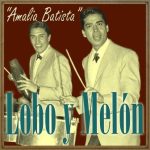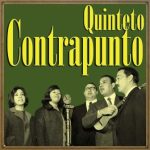THE THREE SUNS
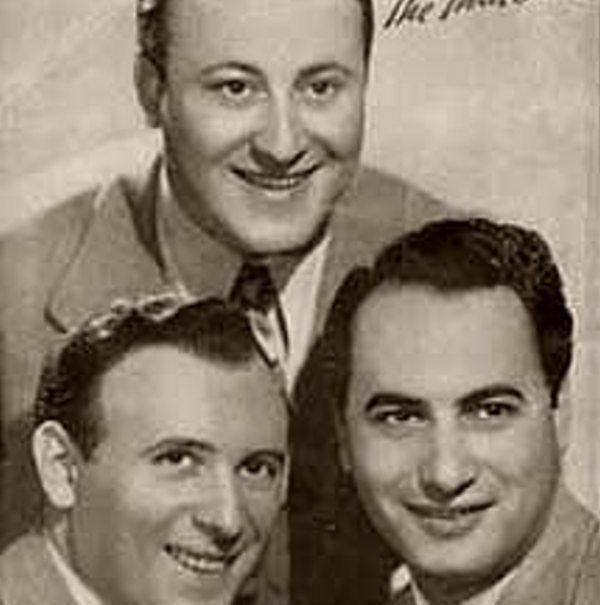
Biography
The Three Suns was an American instrumental pop group, popular in the 1940s and 1950s.
The Three Suns was formed in 1939 by Al Nevins (guitar) and Morty Nevins (accordion) and Artie Dunn (vocals, electronic organ). They later signed with RCA Victor.
In 1944, their first hit record was “Twilight Time”, written by the band along with Buck Ram. “Twilight Time” sold over four million copies and was awarded a gold disc.
This was followed by “Peg o’ My Heart”, which was one of the best-selling records of 1947 in the United States. The group was featured in Alfred Hitchcock’s Rope (1948) performing an off-screen “radio sequence”, and in Two Gals and a Guy (1951).
The Three Suns underwent several lineup changes in the 1950s, and broke up briefly in the middle of the decade before Dunn resurrected the name with a new lineup. The group’s popularity waned and its historical significance was essentially forgotten in the wake of rock and roll, but interest in the ensemble was renewed in the 1990s by fans of lounge music and exotica.
The Three Suns is also notable in that they were reputed to have been the favorite musical group of former First Lady Mamie Eisenhower.
Founding member Al Nevins was also co-founder of Aldon Music, a Brill Building songwriting company.
Founding members
Artie Dunn — vocals, organ (died January 15, 1996, age 73)
Al Nevins — guitar (died January 25, 1965, age 48)[4]
Morty Nevins — accordion (died July 23, 1990, age 63)
Later members
Johnny Buck (Bucky Pizzarelli) — guitar
Joe Negri — guitar
Joe Vento — accordion, piano
Johnny Romano — guitar
Tony Lovello — accordion
Del Casher (Del Kacher) — guitar
The first records released by The Three Suns, during the 1940s and 1950s, were 78 rpm. In 1949 RCA Victor released their first 10 inch LP. Between 1950-1954, 10-inch albums were released. In 1955, The Three Suns released their first 12 inch LP Soft & Sweet and in 1958 released their first stereo LP.
In 1956, RCA started recording in stereo. From 1958 until 1969, RCA Victor mixed two versions for each LP release with the prefixes “LPM” for mono and “LSP” for stereo; however there are some stereo releases with mono counterparts that were released before 1958. There may be double entries in the following list for that reason. RCA changed their prefix to reflect the discontinuation of mono in the early 1970s.



 The Three Suns With String Orchestra
The Three Suns With String Orchestra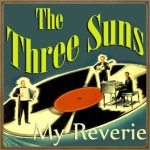 My Reverie, The Three Suns
My Reverie, The Three Suns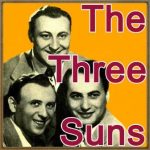 Moonlight and Roses, The Three Suns
Moonlight and Roses, The Three Suns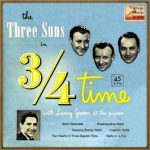 Three-Quarter Time, The Three Suns
Three-Quarter Time, The Three Suns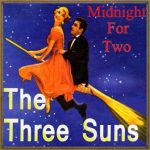 Midnight for Two, The Three Suns
Midnight for Two, The Three Suns 100 Instrumental Versions
100 Instrumental Versions 100 Vintage Jazz Favorites
100 Vintage Jazz Favorites 100 Vintage Romantic Songs
100 Vintage Romantic Songs 100 Vintage Relaxing Music
100 Vintage Relaxing Music
